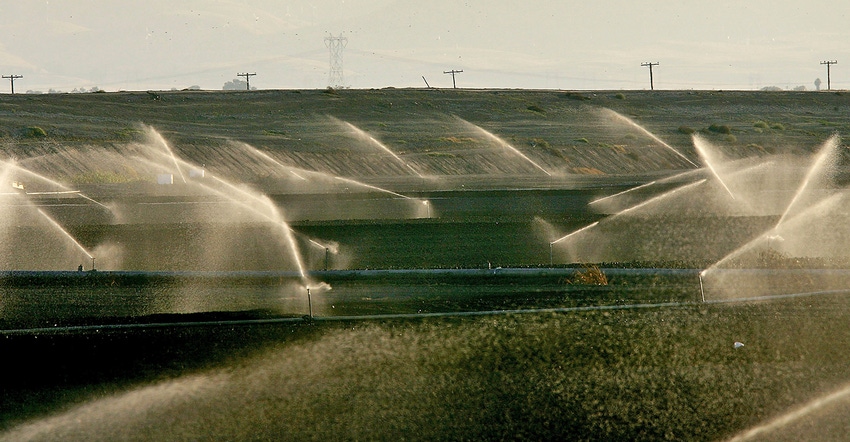June 20, 2017

An important tool that provides Western water managers with stronger local control has caught the attention of President Donald Trump's administration and Congress this summer.
Rep. Doug Lamborn, R-Colo., is introducing legislation that would authorize the secretary of the interior to facilitate some of the Department of the Interior's Bureau of Reclamation project and facilities transfers to non-federal ownership. Trump’s Department of the Interior is also developing a proposal to facilitate the transfer of title of certain reclamation projects and facilities when such transfers are beneficial to all parties.
Irrigation districts and other local water agencies are responsible for the operation and maintenance of most of reclamation’s water supply and distribution facilities. At the Family Farm Alliance, we have worked with several local operating entities over the past two decades to transfer all or parts of reclamation projects.
“Transferred works” are those facilities where project operation, maintenance and replacement responsibilities are contracted to the non-federal entity. For all intents and purposes, these facilities have already been transferred to the non-federal entity. But, the facilities are still owned by the federal government.
Title transfers can help reduce federal costs and liability. They allow for a better allocation of federal resources. Operational decisions are timelier and many times, are more cost-effective when made at the local level.
Local control, improvements possible
Traditional federal funding opportunities that were once used to tackle our massive aging water infrastructure challenges no longer exist. If a local district gains title to its facilities, it can take advantage of other financing opportunities and partner with local, state, federal and/or non-governmental programs to rehabilitate their facilities. Reclamation projects were built to grow the West. The original implied intent was that, once the repayment contracts were paid off, the Bureau of Reclamation would turn these projects over to the local districts to operate. In due time, title to the facilities would be transferred.
Regrettably, there are many barriers that make it difficult to efficiently transfer title to these local operating entities. What should be a simple transaction has morphed over the years into a process that can be expensive, uncertain and very lengthy. Local water agencies are many times discouraged from pursuing title transfer because the process is expensive and slow. Environmental analyses can be time-consuming, even for uncomplicated projects that will continue to be operated in the same manner as they always have been. And, importantly, every title transfer currently requires an act of Congress to accomplish, regardless of whether the project covers 10 acres or 100,000 acres.
We know there are irrigation districts successfully operating and maintaining transferred works in the West who are interested in acquiring title to uncomplicated reclamation facilities. Lamborn’s bill would help facilitate those transfers.
Still, even with the passage of the legislation, some title transfers will continue to be expensive and time-consuming. That’s because of the complexities and expensive processes of meeting the requirements of federal environmental laws. Those processes must continue to be reformed and streamlined in order for additional, more complex projects to benefit from the intent of this legislation.
Keppen is executive director of the Family Farm Alliance.
About the Author(s)
You May Also Like




